EP 822 Can Math Improve Our Democracy?
 Math is used by campaign strategists to help politicians decide where to travel and spend money when running for office. The same kinds of calculations can help ordinary citizens make the best use of their time and resources. And for change agents who want a more representative democracy, these simulations and ‘what-if’s’ might give us the empirical data to evaluate what might occur if, for example, we eliminated the electoral college and went to a popular vote method, had open primaries for congressional districts and other offices and employed some form of rank-choice voting. Our guest, Sam Wang, is a Neuroscience Professor at Princeton University and the Director of the Electoral Innovation Lab, where they developed the Voter Maximizer, which performs a non-partisan mathematical and strategic analysis to identify races and ballot questions where the per-voter impact is greatest. Their work does not center on campaigns, but rather on the individual voter. It’s a fascinating lens into our political and electoral systems.
Math is used by campaign strategists to help politicians decide where to travel and spend money when running for office. The same kinds of calculations can help ordinary citizens make the best use of their time and resources. And for change agents who want a more representative democracy, these simulations and ‘what-if’s’ might give us the empirical data to evaluate what might occur if, for example, we eliminated the electoral college and went to a popular vote method, had open primaries for congressional districts and other offices and employed some form of rank-choice voting. Our guest, Sam Wang, is a Neuroscience Professor at Princeton University and the Director of the Electoral Innovation Lab, where they developed the Voter Maximizer, which performs a non-partisan mathematical and strategic analysis to identify races and ballot questions where the per-voter impact is greatest. Their work does not center on campaigns, but rather on the individual voter. It’s a fascinating lens into our political and electoral systems.
Podcast: Play in new window | Download
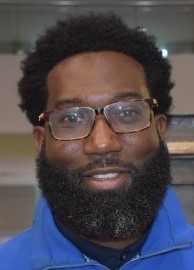 When we think of institutions that define welcoming spaces to convene and conduct business in virtually every community in America the local library is first and foremost. It represents the one place in which you can build social cohesion, promote civic renewal, and advance the ideals of a healthy democracy. And where you can get a potboiler of a new novel, share your computer skills for research with others, attend a multitude of programs or watch children’s eyes light up as part of story time programs and other tactile experiences, like learning a percussive instrument. All of that and so much more takes place within libraries which are staffed by creative professionals who are engaged in designing new learning experiences for young and old. In his new book, “Meet Me at the Library: A Place to Foster Social Connection and Promote Democracy”, Shamichael Hallman reminds us of all that libraries represent in a time when loneliness and isolation demand that we find public spaces to bond and forge new relationships. The library serves this purpose…and so much more.
When we think of institutions that define welcoming spaces to convene and conduct business in virtually every community in America the local library is first and foremost. It represents the one place in which you can build social cohesion, promote civic renewal, and advance the ideals of a healthy democracy. And where you can get a potboiler of a new novel, share your computer skills for research with others, attend a multitude of programs or watch children’s eyes light up as part of story time programs and other tactile experiences, like learning a percussive instrument. All of that and so much more takes place within libraries which are staffed by creative professionals who are engaged in designing new learning experiences for young and old. In his new book, “Meet Me at the Library: A Place to Foster Social Connection and Promote Democracy”, Shamichael Hallman reminds us of all that libraries represent in a time when loneliness and isolation demand that we find public spaces to bond and forge new relationships. The library serves this purpose…and so much more. We have been the powerhouse on the world’s stage since WWII and we virtually stood alone as a dominant force since 1989 when the Berlin Wall came down. While there have clearly been wobbles since, like the Iraq debacle, we now must envision a new era in foreign policy, both because of the rise of our major adversary, in China, as well as the new Trump Administration’s uneven support for NATO and the alliance that has secured the peace throughout this modern era. Edward Goldberg, an NYU professor, and the author of “The United States as Global Liberal Hegemon: How the US Came to Lead the World”, leads us through this changing political landscape. While we use our military, economy and geography to straddle the globe as the major force still, are those days coming to an end? And, if so, what are the implications of this changing dynamic? We discuss today in detail on this podcast.
We have been the powerhouse on the world’s stage since WWII and we virtually stood alone as a dominant force since 1989 when the Berlin Wall came down. While there have clearly been wobbles since, like the Iraq debacle, we now must envision a new era in foreign policy, both because of the rise of our major adversary, in China, as well as the new Trump Administration’s uneven support for NATO and the alliance that has secured the peace throughout this modern era. Edward Goldberg, an NYU professor, and the author of “The United States as Global Liberal Hegemon: How the US Came to Lead the World”, leads us through this changing political landscape. While we use our military, economy and geography to straddle the globe as the major force still, are those days coming to an end? And, if so, what are the implications of this changing dynamic? We discuss today in detail on this podcast.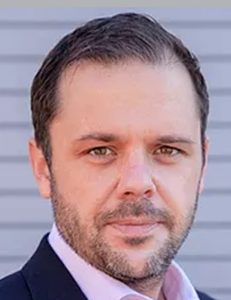
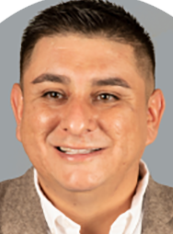 Our guest on today’s podcast, Rafael Martinez, is an assistant professor of Southwest Borderlands at Arizona State University. There he focuses on immigration, migration, the US-Mexico Borderlands, and the American Southwest. Through that work he demonstrates how communities along the US-Mexico border contribute to the social, political, and economic fabric of the US. He calls himself am ‘undocu-scholar’, a DREAMer, as part of the Deferred Action for Childhood Arrivals (DACA) program, which offered certain protections to young people like himself. He discusses the many issues surrounding immigration and particularly the rise of undocumented youth social movements in 21st century America. He documents their efforts in his book, “Illegalized: Undocumented Youth Movements in the United States.”
Our guest on today’s podcast, Rafael Martinez, is an assistant professor of Southwest Borderlands at Arizona State University. There he focuses on immigration, migration, the US-Mexico Borderlands, and the American Southwest. Through that work he demonstrates how communities along the US-Mexico border contribute to the social, political, and economic fabric of the US. He calls himself am ‘undocu-scholar’, a DREAMer, as part of the Deferred Action for Childhood Arrivals (DACA) program, which offered certain protections to young people like himself. He discusses the many issues surrounding immigration and particularly the rise of undocumented youth social movements in 21st century America. He documents their efforts in his book, “Illegalized: Undocumented Youth Movements in the United States.” For some years, we’ve been told that the ice melt in Antarctica, Greenland and other places in the cryosphere represent the harbinger of things to come announcing the profound effects of global warming on the planet. Little did I know that a new discipline has developed around ‘ice patch archeology,’ which ties us to the environment and culture of the past. Science journalist, Lisa Baril, in her new book “The Age of Melt: What Glaciers, Ice Mummies, and Ancient Artifacts Teach Us About Climate, Culture, and the Future Without Ice,” excavates a tour of ice for us, exploring the conflicting belief systems around ice and its integral relationship to people. Interestingly, the more the ice melts the more we learn about the past and yet, at the same time, it compromises our future. The meltwater is critical to the fresh water we drink and utilize in many parts of the world, but this sustainer of life can only do its job when it releases seasonally not in the overwhelming torrent that continued warming will eventually lead to. We are in a race against time. Can human ingenuity get us past this man- made crisis? We’ll discuss today.
For some years, we’ve been told that the ice melt in Antarctica, Greenland and other places in the cryosphere represent the harbinger of things to come announcing the profound effects of global warming on the planet. Little did I know that a new discipline has developed around ‘ice patch archeology,’ which ties us to the environment and culture of the past. Science journalist, Lisa Baril, in her new book “The Age of Melt: What Glaciers, Ice Mummies, and Ancient Artifacts Teach Us About Climate, Culture, and the Future Without Ice,” excavates a tour of ice for us, exploring the conflicting belief systems around ice and its integral relationship to people. Interestingly, the more the ice melts the more we learn about the past and yet, at the same time, it compromises our future. The meltwater is critical to the fresh water we drink and utilize in many parts of the world, but this sustainer of life can only do its job when it releases seasonally not in the overwhelming torrent that continued warming will eventually lead to. We are in a race against time. Can human ingenuity get us past this man- made crisis? We’ll discuss today.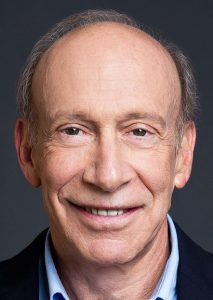 The U.S Senate has many important responsibilities. Among them are making laws, ratifying justices to the U.S. Supreme Court and other federal courts and approving presidential nominees for key Cabinet positions. For the newly re-elected Donald Trump Administration the latter responsibility is key to determining whether the chamber is ready to step up to its constitutional responsibility as a separate branch of government or whether its GOP majority will simply go along with questionable nominees in order to accede to President-elect Trump’s desires. It will be a bellwether of what is to come from the branch of government that can put a check on a new President who seems to want to put the Imperial Presidency on skates. Will they? Early signs that they may be taking seriously their independent role was the selection of Sen. John Thune as the Republican Majority Leader and the pressure they exerted to force Matt Gaetz to withdraw his nomination for Attorney General. Joining us to discuss what to expect from the Senate is a man who has worked there and written a trilogy of books about the last sixty years of the Senate. Ira Shapiro’s latest book is “The Betrayal: How Mitch McConnell and the Senate Republicans Abandoned America.”
The U.S Senate has many important responsibilities. Among them are making laws, ratifying justices to the U.S. Supreme Court and other federal courts and approving presidential nominees for key Cabinet positions. For the newly re-elected Donald Trump Administration the latter responsibility is key to determining whether the chamber is ready to step up to its constitutional responsibility as a separate branch of government or whether its GOP majority will simply go along with questionable nominees in order to accede to President-elect Trump’s desires. It will be a bellwether of what is to come from the branch of government that can put a check on a new President who seems to want to put the Imperial Presidency on skates. Will they? Early signs that they may be taking seriously their independent role was the selection of Sen. John Thune as the Republican Majority Leader and the pressure they exerted to force Matt Gaetz to withdraw his nomination for Attorney General. Joining us to discuss what to expect from the Senate is a man who has worked there and written a trilogy of books about the last sixty years of the Senate. Ira Shapiro’s latest book is “The Betrayal: How Mitch McConnell and the Senate Republicans Abandoned America.”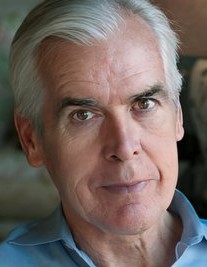 The real question is whether that is even the goal and purpose of the Department of Government Efficiency (DOGE). Or is it retaliation for Donald Trump’s inability to bring bureaucrats to heel in his first administration? We will find out in short order because it’s a race against several clocks–the ‘mandate’ claim which gets smaller as all votes are counted, the Democrats to find their voice after a loss that stunned many, Congressional Republicans to realize they have mid- term elections to survive and union lobbyists and lawyers to push back against any serious tinkering with the federal workforce and programs, to blunt the force of what’s proposed. We’ve had Commissions and several efforts like this in the past under Democrats and Republicans, and it’s had little effect on the growth of government. Philip K. Howard, who founded commongood.org, has been seeking simpler governing frameworks that honor the role of human judgment and responsibility for years now. His work is serious and intentional. In this podcast, he describes what he believes should be done and casts a doubtful eye on the approach being taken by DOGE.
The real question is whether that is even the goal and purpose of the Department of Government Efficiency (DOGE). Or is it retaliation for Donald Trump’s inability to bring bureaucrats to heel in his first administration? We will find out in short order because it’s a race against several clocks–the ‘mandate’ claim which gets smaller as all votes are counted, the Democrats to find their voice after a loss that stunned many, Congressional Republicans to realize they have mid- term elections to survive and union lobbyists and lawyers to push back against any serious tinkering with the federal workforce and programs, to blunt the force of what’s proposed. We’ve had Commissions and several efforts like this in the past under Democrats and Republicans, and it’s had little effect on the growth of government. Philip K. Howard, who founded commongood.org, has been seeking simpler governing frameworks that honor the role of human judgment and responsibility for years now. His work is serious and intentional. In this podcast, he describes what he believes should be done and casts a doubtful eye on the approach being taken by DOGE. Zoning has been used by local communities to open up possibilities for some and shut them down for others; to beautify some spaces or change their character not for the better and to recognize current realities or live in the past. Once we recognize the power of zoning, we can harness it to create walkable and vibrant communities, resist the monotonous effects of suburban sprawl, integrate exciting design elements and work toward important goals like more affordable housing units, public transportation and creative housing options surrounding it. Zoning may seem like an invisible force shaping our communities but, in most communities, much ink has been spilled defining the most common districts: commercial, residential, industrial, open space and mixed districts, even creating ‘special districts’ to encourage, say, entertainment venues in an area. In her new book “Key to the City: How Zoning Shapes Our World”, legal scholar and architect Sara Bronin reveals the impacts of zoning for good and ill. Many cities have not revisited their zoning codes for years, leaving in place ordinances that maintain racial segregation, prioritize cars over people, and enable great ecological harm.
Zoning has been used by local communities to open up possibilities for some and shut them down for others; to beautify some spaces or change their character not for the better and to recognize current realities or live in the past. Once we recognize the power of zoning, we can harness it to create walkable and vibrant communities, resist the monotonous effects of suburban sprawl, integrate exciting design elements and work toward important goals like more affordable housing units, public transportation and creative housing options surrounding it. Zoning may seem like an invisible force shaping our communities but, in most communities, much ink has been spilled defining the most common districts: commercial, residential, industrial, open space and mixed districts, even creating ‘special districts’ to encourage, say, entertainment venues in an area. In her new book “Key to the City: How Zoning Shapes Our World”, legal scholar and architect Sara Bronin reveals the impacts of zoning for good and ill. Many cities have not revisited their zoning codes for years, leaving in place ordinances that maintain racial segregation, prioritize cars over people, and enable great ecological harm. But isn’t that unconstitutional? That was the basis of my line of inquiry on this podcast with esteemed professor, Ira Lupu, George Washington Law Professor Emeritus and a nationally recognized scholar in constitutional law with an emphasis on the religion clauses of the 1st Amendment. Legal or not, Oklahoma’s superintendent of schools, Ryan Walters, has ordered public schools in the state to teach the Bible and wants funding for a controversial religious charter school, though the state’s Supreme Court has struck that down. Louisiana leaders directed schools to display The Ten Commandments and Texas leaders proposed a curriculum that incorporates biblical lessons. In these red states, where there are large evangelical Christian residents, infusing Bible teachings into the curriculum is gaining traction. There is a growing belief that the U.S. Supreme Court is now more predisposed than in any other era to uphold such mandates requiring religious education if a suit comes before it. Professor Lupu is a pre-eminent thinker in this aspect of law and is wonderful to listen to. He discusses this topic in nuanced ways that you’ve likely never heard before.
But isn’t that unconstitutional? That was the basis of my line of inquiry on this podcast with esteemed professor, Ira Lupu, George Washington Law Professor Emeritus and a nationally recognized scholar in constitutional law with an emphasis on the religion clauses of the 1st Amendment. Legal or not, Oklahoma’s superintendent of schools, Ryan Walters, has ordered public schools in the state to teach the Bible and wants funding for a controversial religious charter school, though the state’s Supreme Court has struck that down. Louisiana leaders directed schools to display The Ten Commandments and Texas leaders proposed a curriculum that incorporates biblical lessons. In these red states, where there are large evangelical Christian residents, infusing Bible teachings into the curriculum is gaining traction. There is a growing belief that the U.S. Supreme Court is now more predisposed than in any other era to uphold such mandates requiring religious education if a suit comes before it. Professor Lupu is a pre-eminent thinker in this aspect of law and is wonderful to listen to. He discusses this topic in nuanced ways that you’ve likely never heard before.